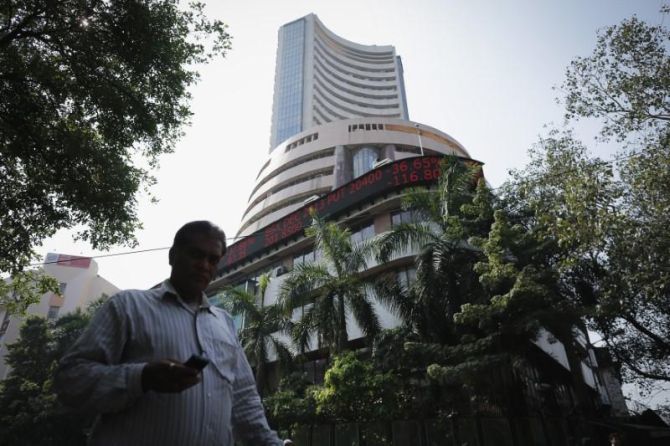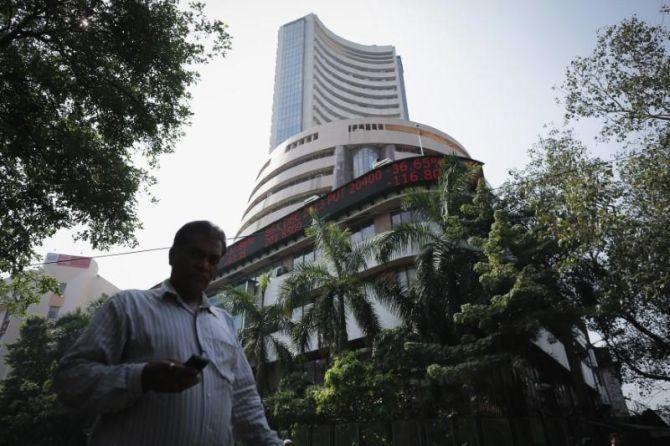The Indian equity market has been dancing to the tune of foreign portfolio investors (FPIs) for more than two decades now.
Typically, when FPIs are net-buyers on Dalal Street (D-Street) and raise their ownership of Indian equities, the broader market rallies. Conversely, when FPIs turn net-sellers, the stock prices decline.
FPIs have been net-sellers on D-Street for five quarters on the trot and the result has been predictable.
The average FPI stake in BSE 200 companies declined from a high of 25.5 per cent at the end of March 2021 quarter to 22.2 per cent at the end of June this year.
As a result, the combined market capitalisation (m-cap) of BSE 200 companies declined to Rs 190 trillion at the end of June, from a record high of around Rs 211 trillion at the end of the September 2021 quarter.
Compared to the quarter ended March 2022, their average stake is down 40 basis points (bps), and the total m-cap of BSE 200 companies down Rs 19.7 trillion.
The value of FPI shareholding is down Rs 5.36 trillion.
The sell-off by FPIs has been quite broad-based and they have cut their stake in 130 of the 191 BSE 200 companies in the past five quarters, as well as the previous quarter, reveals the data.
As a result, most of these companies saw a decline in their share price and m-cap hitting their shareholders.
In contrast, FPIs raised stake in nearly one-third of the BSE 200 companies during the two periods, and most of these companies outperformed the broader market.
The data suggests that FPIs continue to raise their stake in select stocks and such companies continue to do well on the bourses.
The retail investors who have followed the FPI lead have benefited from this.
For example, the FPI stake in Max Healthcare Institute was up 872 bps in the first quarter (Q1) of 2022-23 (FY23), compared with the previous quarter, and the stock was up 6 per cent during this period, against a 9.4 per cent decline in the combined m-cap of BSE 200 companies in the period.
Similarly, FPI stake in Zee Entertainment Enterprises was down 856 bps in Q1FY23, compared to the holding at the end of March, and the stock was down 25.7 per cent in the period.
1 bps is one-hundredth of a percentage point.
Source: Read Full Article


